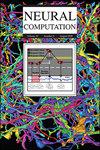Probing the Structure and Functional Properties of the Dropout-Induced Correlated Variability in Convolutional Neural Networks
IF 2.7
4区 计算机科学
Q3 COMPUTER SCIENCE, ARTIFICIAL INTELLIGENCE
引用次数: 0
Abstract
Computational neuroscience studies have shown that the structure of neural variability to an unchanged stimulus affects the amount of information encoded. Some artificial deep neural networks, such as those with Monte Carlo dropout layers, also have variable responses when the input is fixed. However, the structure of the trial-by-trial neural covariance in neural networks with dropout has not been studied, and its role in decoding accuracy is unknown. We studied the above questions in a convolutional neural network model with dropout in both the training and testing phases. We found that trial-by-trial correlation between neurons (i.e., noise correlation) is positive and low dimensional. Neurons that are close in a feature map have larger noise correlation. These properties are surprisingly similar to the findings in the visual cortex. We further analyzed the alignment of the main axes of the covariance matrix. We found that different images share a common trial-by-trial noise covariance subspace, and they are aligned with the global signal covariance. This evidence that the noise covariance is aligned with signal covariance suggests that noise covariance in dropout neural networks reduces network accuracy, which we further verified directly with a trial-shuffling procedure commonly used in neuroscience. These findings highlight a previously overlooked aspect of dropout layers that can affect network performance. Such dropout networks could also potentially be a computational model of neural variability.探究卷积神经网络中由辍学引发的相关变异性的结构和功能特性
计算神经科学研究表明,神经对不变刺激的变化结构会影响编码信息的数量。一些人工深度神经网络,如具有蒙特卡洛剔除层的网络,在输入固定时也具有可变的响应。然而,人们还没有研究过带剔除层的神经网络中逐次试验的神经协方差结构,也不知道它在解码准确性中的作用。我们在一个训练和测试阶段都有丢弃的卷积神经网络模型中研究了上述问题。我们发现,神经元之间的逐次试验相关性(即噪声相关性)是正的,且维度较低。在特征图中距离较近的神经元具有较大的噪声相关性。这些特性与视觉皮层的发现惊人地相似。我们进一步分析了协方差矩阵主轴的排列。我们发现,不同图像共享一个共同的逐次试验噪声协方差子空间,并且它们与全局信号协方差对齐。噪声协方差与信号协方差一致的这一证据表明,辍学神经网络中的噪声协方差会降低网络的准确性,我们通过神经科学中常用的试验洗牌程序进一步直接验证了这一点。这些发现凸显了以前被忽视的、可能影响网络性能的 "剔除层 "的一个方面。这种剔除网络也有可能成为神经变异性的计算模型。
本文章由计算机程序翻译,如有差异,请以英文原文为准。
求助全文
约1分钟内获得全文
求助全文
来源期刊

Neural Computation
工程技术-计算机:人工智能
CiteScore
6.30
自引率
3.40%
发文量
83
审稿时长
3.0 months
期刊介绍:
Neural Computation is uniquely positioned at the crossroads between neuroscience and TMCS and welcomes the submission of original papers from all areas of TMCS, including: Advanced experimental design; Analysis of chemical sensor data; Connectomic reconstructions; Analysis of multielectrode and optical recordings; Genetic data for cell identity; Analysis of behavioral data; Multiscale models; Analysis of molecular mechanisms; Neuroinformatics; Analysis of brain imaging data; Neuromorphic engineering; Principles of neural coding, computation, circuit dynamics, and plasticity; Theories of brain function.
 求助内容:
求助内容: 应助结果提醒方式:
应助结果提醒方式:


